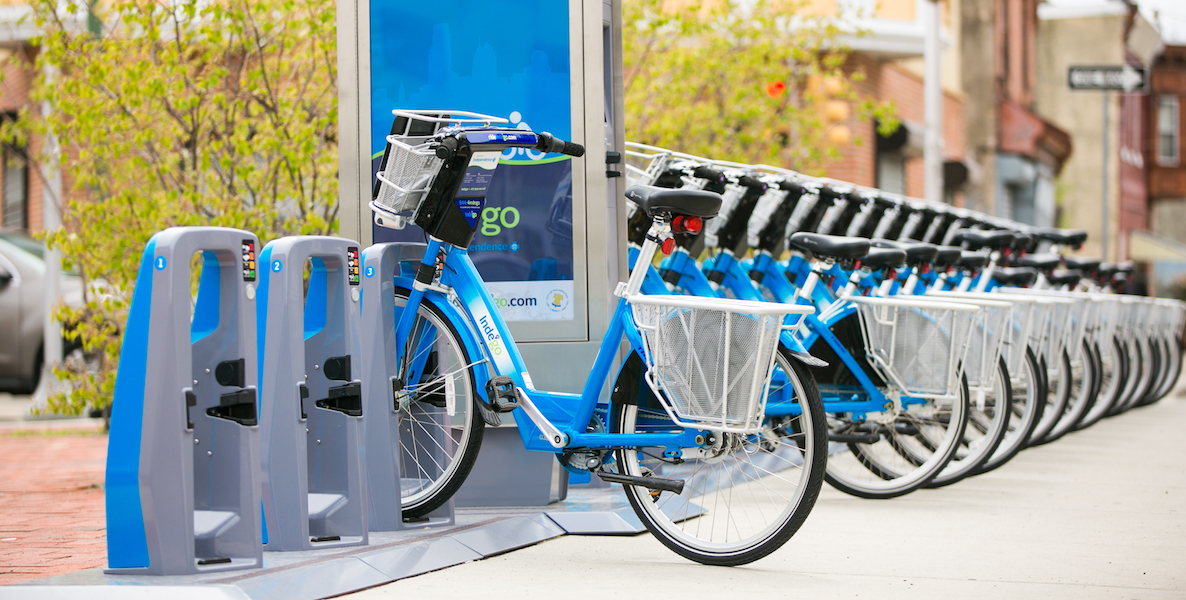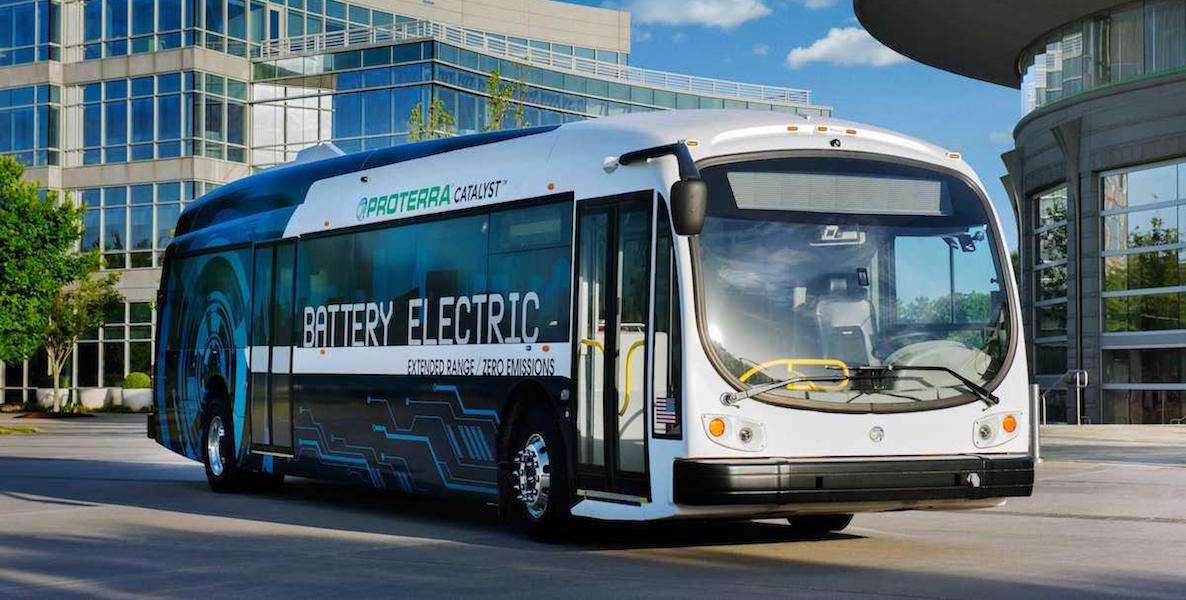On April 20, Mayor Jim Kenney signed a bill to officially kill a program designed to encourage residents to buy electric cars. Until last year, when a moratorium on the program began, electric vehicle owners could apply for “EV only” spaces in front of their homes, provided they paid for a charging station at the parking spot.
The optics are undoubtedly bad— a city with sustainability goals that loves to tout its green energy progress removes incentives for people to buy environmentally-sound cars so it can save a few parking spots. But the parking spot program had never been that successful. Sixty-eight people used it in a decade.

Prefer the audio version of this story. Listen to this article in CitizenCast below:

The real problem for Philly when it comes to electric cars has more to do with city government and less to do with everyday residents. Philadelphia is far behind many of its peers when it comes to stocking its own fleet with electric vehicles and setting goals for the future.
The city has 21 plug-in electric vehicles, all police patrol cars. Between this current fiscal year and the next, another 20 Chevy Volts and 20 charging stations will be added for various departments. The city’s entire fleet consists of nearly 6,000 vehicles.
Right now, out of several hundred cars and trucks used by police, the parks and streets departments and many other groups in city government, the city has 21 plug-in electric vehicles, according to the Mayor’s Office. Between this current fiscal year and the next, another 20 Chevy Volts and 20 charging stations will be added for various departments. The city’s entire fleet consists of nearly 6,000 vehicles.
![]() As much as highways and roads full of private electric cars owned by Philadelphians would help the city, cities and states have only limited means in encouraging people to purchase them. When asked what municipalities could do to best introduce electric vehicles, PennFuture’s energy center director, Rob Altenburg, says one of the primary steps should be increasing the number of electric fleet vehicles.
As much as highways and roads full of private electric cars owned by Philadelphians would help the city, cities and states have only limited means in encouraging people to purchase them. When asked what municipalities could do to best introduce electric vehicles, PennFuture’s energy center director, Rob Altenburg, says one of the primary steps should be increasing the number of electric fleet vehicles.
Other cities have made much greater progress. Los Angeles has lived up to a promise that at least 50 percent of its new vehicle purchases would be EV’s (though its BMW electric police cars aren’t getting much use). San Francisco has a goal of having all city sedans electric by 2022. New York, with more than 700 city-owned EV’s, wants to add 2,000 more to its gargantuan 30,000 vehicle fleet by 2025. Chicago just got a $15.5 million grant for 182 electric vehicles and has a goal of a 25 percent electric fleet by 2023.
Los Angeles has lived up to a promise that at least 50 percent of its new vehicle purchases would be electric. San Francisco has a goal of having all city sedans electric by 2022. New York, with more than 700 city-owned EV’s, wants to add 2,000 more by 2025.
Meanwhile, Philly released a report on electric vehicles in March from a task force that spent months putting it together. One recommendation is “encourage EV fleet adoption.” But the information is limited to saying city departments should “explore ‘electric first’ guidelines” when they purchase new vehicles. That’s it. There’s no benchmark to meet or specific plans for increasing the number of EV’s.
![]() Chris Puchalsky, director of policy and strategic initiatives in the Mayor’s Office of Transportation and Infrastructure Systems, says “it’s a little too soon for us to set some long term goals that are informed by experience. That’s what purchasing these (20) vehicles will do. After we do that and see some of the issues and benefits we’ll be able to better make a long term plan.”
Chris Puchalsky, director of policy and strategic initiatives in the Mayor’s Office of Transportation and Infrastructure Systems, says “it’s a little too soon for us to set some long term goals that are informed by experience. That’s what purchasing these (20) vehicles will do. After we do that and see some of the issues and benefits we’ll be able to better make a long term plan.”
City Hall and the Mayor’s Office can look no further than SEPTA for an example of how to introduce EV’s quickly. The transit agency has 884 diesel-hybrid buses on the streets now and will have 1,272 by 2021. More importantly, SEPTA will have its first all-electric buses by the end of the year.
Two years ago, the company received a federal grant of $2.6 million to pay for 25 electric buses. Ron Hopkins, SEPTA’s assistant general manager of vehicle engineering and maintenance, says it is the largest order of electric vehicles for any transit agency in the nation. The first one, produced by contractor Proterra, is being tested in Greenville, S.C., right now. It is scheduled to be ready by August, with a new electric bus to be introduced into SEPTA’s fleet every week until the full 25 are in Philly. The buses will run on routes 29 and 79 and be powered up at a new charging station in South Philly. They’re expected to run for about 10 hours when fully charged.
SEPTA will have nearly 200 diesel-hybrid buses on the streets by June and 575 by 2021. And the transit agency will have its first all-electric buses by the end of the year.
How much money could be saved and dangerous emissions prevented? Hopkins isn’t sure yet. But he says the hybrid buses get 4.2 miles per gallon, compared to 2.5 for regular diesel buses. The electric buses will be even more efficient. They’ll also be more pleasing for riders with a more aerodynamic look and a rear window.
The distinctive appearance could go a long way to educating Philly residents about electric. Altenburg says EV’s are a lot like solar energy. They become more popular when people see their neighbors using them. Who better to accelerate a trend than city officials, by taking action to ensure Philly’s many city-owned vehicles aren’t primarily gas guzzlers?
They want us to buy electric vehicles. We should ask the same of them.
Correction: An earlier version of this story misstated the number of diesel-hybrid buses the has and will have by 2021.
Photo via SEPTA






